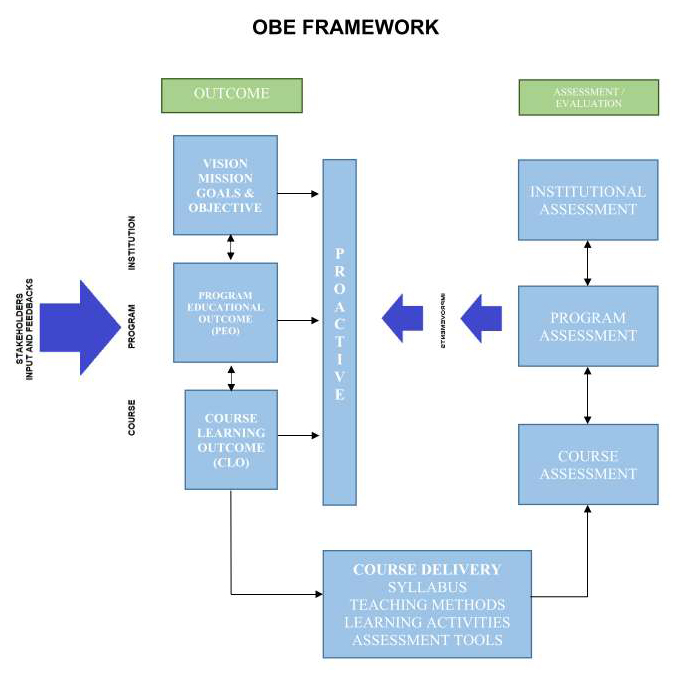Outcome-Based Education (OBE) Framework

Program Outcomes
- An ability to apply knowledge of mathematics and sciences to solve complex engineering problems
- An ability to design and conduct experiments as well as analyze and interpret data
- An ability to design a system, component or process to meet desired needs within realistic constraints such as economic, environmental. social political, ethical, health and safety, manufacturability, and sustainability, in accordance with standards;
- Ability to function on multidisciplinary teams
- An ability to identify, formulate, and solve complex engineering problems;
- Understanding of professional and ethical responsibility;
- Ability to communicate effectively;
- Broad education necessary to understand the impact of engineering solutions in a global, economic, environmental and societal context
- Recognition of the need for, and an ability to engage in life-long learning.
- Knowledge of contemporary issues.
- Ability to use techniques, skills, and modern engineering tools necessary for engineering practice; and
- Knowledge and understanding of engineering and management principles as a member and leader in a team, to manage projects and in multidisciplinary environments
Program Educational Outcomes
By the time of graduation, the students of the program shall have the ability to;
- Ability to apply knowledge of mathematics and science to solve engineering problems;
- Ability to design and conduct experiments, as well as to analyze and interpret data;
- Ability to design a system, component, or process to meet desired needs within realistic constraints such as economic, environmental, social, political, ethical, health and safety, manufacturability, and sustainability, in accordance with standards;
- Ability to function on multidisciplinary teams;
- Ability to identify, formulate, and solve engineering problems;
- Understanding of professional and ethical responsibility;
- Ability to communicate effectively;
- Broad education necessary to understand the impact of engineering solutions in a global, economic, environmental, and social context;
- Recognition of the need for, and an ability to engage in life long-learning
- Knowledge of contemporary issues;
- Ability to use techniques, skills, and modern engineering tools necessary for engineering practice; and
- Knowledge and understanding of engineering and management principles as a member and leader in a team, to manage projects to multidisciplinary environments.


